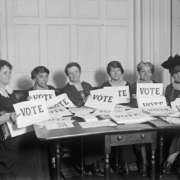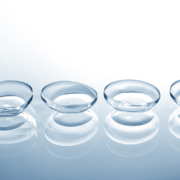Media contact: National Consumers League – Carol McKay, carolm@nclnet.org, (412) 945-3242
Washington, DC—Today, February 5, 2022, the National Consumers League sent a letter to Spotify CEO Daniel Ek to call for the removal of episodes of Joe Rogan’s podcast, “The Joe Rogan Experience,” that contain demonstrably harmful misinformation related to masks, vaccines, and other public health measures. The text of the letter appears below.
February 5, 2022
Daniel Ek
Chief Executive Officer
Spotify USA Inc
150 Greenwich Street, 62nd Floor
New York, NY 10007
RE: COVID-19 misinformation on The Joe Rogan Experience
Dear Daniel Ek:
Since late 2020, highly effective mRNA vaccines have been accessible for free to the general public. Despite this, millions of Americans remain unvaccinated, which has been a major contributing factor to the deaths of nearly 900,000 Americans during the pandemic.[1] Spotify has a civic responsibility to do everything in its power to help prevent future COVID-19 deaths—including (but not limited to) removing episodes of Joe Rogan’s podcast, The Joe Rogan Experience, that contain demonstrably harmful misinformation related to masks, vaccines, and other public health measures.
The National Consumers League (NCL), which I lead, has worked hard to combat COVID-19 misinformation.[2] Guided for more than a century by the legacy of our first General Secretary, Florence Kelley, NCL has championed vaccines as lifesaving medical interventions. General Secretary Kelley’s support for inoculations played a key part in mitigating a critical smallpox outbreak at the end of the 19th century and her stalwart advocacy for immunizations has informed NCL’s efforts to increase access to and confidence in vaccines for more than 120 years. Recently, we demanded that the Small Business Administration (SBA) rescind Paycheck Protection Program (PPP) funds that were granted to anti-vaccine groups.[3]
On episode #1639 of his podcast, Rogan recommended that young people not get the vaccine, stating “if you’re like 21 years old, and you say to me, should I get vaccinated? I’ll go no.”[4] On episode #1737, Rogan stated, “they’re trying to say that children need it when they don’t. They don’t need it.”[5] This is but one of many instances of Rogan making statements on his podcast that are clearly misinformation. Data from the CDC shows that over 6,000 individuals under the age of 30 have died from COVID-19 to date.[6] Just last month, almost 800 children under the age of 18 were hospitalized with COVID-19 daily, with young adults’ hospitalization rates being nearly double that number.[7] Unfortunately, Rogan’s harmful rhetoric is not limited to just episodes #1639 and #1737; The Joe Rogan Experience has a long and well-documented history of spreading misinformation that clearly violated Spotify’s Platform Rules.[8]
Spotify’s Platform Rules state that “[c]ontent that promotes dangerous false or dangerous deceptive medial information that may cause offline harm or poses a direct threat to public health,” is prohibited on the platform. The Platform Rules further state that violation of these rules may result in violating content being removed by Spotify and the content publisher’s account suspended.[9] Spotify does not appear to have applied its Platform Rules regarding COVID-19 misinformation to The Joe Rogan Experience despite the fact that the platform has removed 20,000 episodes on other podcasts for containing false claims related to COVID-19.[10] We urge Spotify to enforce its COVID-19 Platform Rules consistently, regardless of who the content creator may be.
Spotify’s failure to police The Joe Rogan Experience, creates serious, and potentially deadly risks for his listeners. Research shows that misinformation has a tangible impact on individuals’ willingness to take measures to reduce the risk of COVID-19 infection and transmission. For example, being exposed to false claims reduced vaccination intent by 6.2 percentage points.[11] Another study showed that misinformation led to a decline in individuals’ reception to authentic COVID-19 health guidance.[12] Given the platform’s massive reach, Spotify is uniquely positioned to help protect its hundreds of millions of users from the harm that flows from incorrect statements, false claims, and lies promulgated on the streaming service.[13]
As Spotify’s most popular podcast, Joe Rogan’s audience includes millions of listeners who view him as a trusted source of information, even when his claims are nonfactual and unfounded.[14] Compared to the $0.0032 per stream rate that Spotify reportedly pays other content creators on the platform,[15] Spotify has clearly decided to make a major investment in The Joe Rogan Experience. I understand that Spotify is a commercial business and not a charitable organization. Still, NCL believes that when the world’s largest digital service provider invests $100 million in an endeavor, the results should better the common good—rather than contribute to the world’s most pressing public health crisis.
We urge you to take action and remove episodes of The Joe Rogan Experience which violate Spotify’s COVID-19 Platform Rules.
Sincerely,
Sally Greenberg
Executive Director
National Consumers League
email: sallyg@nclnet.org
cc: Regan Smith, Head of Public Policy, Government Affairs, Spotify
[1] Note: Unvaccinated persons had 53.2 times the risk for COVID-19 associated death compared with fully vaccinated and boosted individuals. Johnson AG, Amin AB, Ali AR, et al. COVID-19 Incidence and Death Rates Among Unvaccinated and Fully Vaccinated Adults with and Without Booster Doses During Periods of Delta and Omicron Variant Emergence — 25 U.S. Jurisdictions, April 4–December 25, 2021. (2022). MMWR Morb Mortal Wkly Rep, 71, 132–138. DOI: http://dx.doi.org/10.15585/mmwr.mm7104e2
[2] National Consumers League. Get the facts on the COVID-19 vaccine. (2021). https://nclnet.org/vaccines
[3] National Consumers League. No PPP for anti-vaxxers! (2021). https://nclnet.org/ppp_antivaxx/
[4] #1639 – Dave Smith. The Joe Rogan Experience. (2021). https://open.spotify.com/episode/7taqki4fGUkcXESbaUzjgh?si=4VNiaS32TKCiLILuTXiv0Q
[5] #1737- Tim Pool. The Joe Rogan Experience. (2021). https://open.spotify.com/episode/1vnRz7xfy27VFTHVeK740V?si=6541c03af7da47fd
[6] Centers of Disease Control and Prevention. Provisional Death Counts for Coronavirus Disease 2019 (COVID-19). (2022). https://www.cdc.gov/nchs/nvss/vsrr/covid_weekly/index.htm#SexAndAge
[7] Centers for Disease Control and Prevention. COVID Data Tracker: New Hospital Admissions. (2022). https://covid.cdc.gov/covid-data-tracker/#new-hospital-admissions
[8] Paterson, A. Joe Rogan Wrapped: A year of COVID-19 misinformation, right-wing myths, and anti-trans rhetoric. Media Matters. (2021). https://www.mediamatters.org/joe-rogan-experience/joe-rogan-wrapped-year-COVID-19-19-misinformation-right-wing-myths-and-anti-trans
[9] Spotify. Spotify Platform Rules. (2022). https://newsroom.spotify.com/2022-01-30/spotify-platform-rules/
[10] Note: While Spotify has removed at least 40 episodes of the Joe Rogan Experience, those episodes do not appear to have been removed due to violations of the Spotify’s Platform Rules related to COVID-19. (Source: Resnikoff, Paul. “Spotify Has Removed 40 Joe Rogan Episodes To Date — Here’s the Full List.” Digital Music News. (2021). https://www.digitalmusicnews.com/2021/03/30/spotify-joe-rogan-episodes-removed/
[11] Loomba, S., de Figueiredo, A., Piatek, S.J. et al. Measuring the impact of COVID-19 vaccine misinformation on vaccination intent in the UK and USA. Nat Hum Behav 5, 337–348 (2021). https://doi.org/10.1038/s41562-021-01056-1
[12] Kim, H. K., Ahn, J., Atkinson, L., & Kahlor, L. A. (2020). Effects of COVID-19 Misinformation on Information Seeking, Avoidance, and Processing: A Multicountry Comparative Study. Science Communication, 42(5), 586–615. https://doi.org/10.1177/1075547020959670
[13] Spotify. About Spotify. (2022). https://newsroom.spotify.com/company-info/
[14] Variety. Joe Rogan Had the No. 1 Podcast in 2021 on Spotify. (2021). https://variety.com/2021/digital/news/joe-rogan-experience-most-popular-podcast-news-roundup-1235123361/
[15] Justice At Spotify. Union of Musicians and Allied Workers. (2022). https://www.unionofmusicians.org/justice-at-spotify
###
About the National Consumers League
The National Consumers League, founded in 1899, is America’s pioneer consumer organization. Our mission is to protect and promote social and economic justice for consumers and workers in the United States and abroad. For more information, visit www.nclnet.org.
 By NCL Health Policy Associate Milena Berhane
By NCL Health Policy Associate Milena Berhane

















